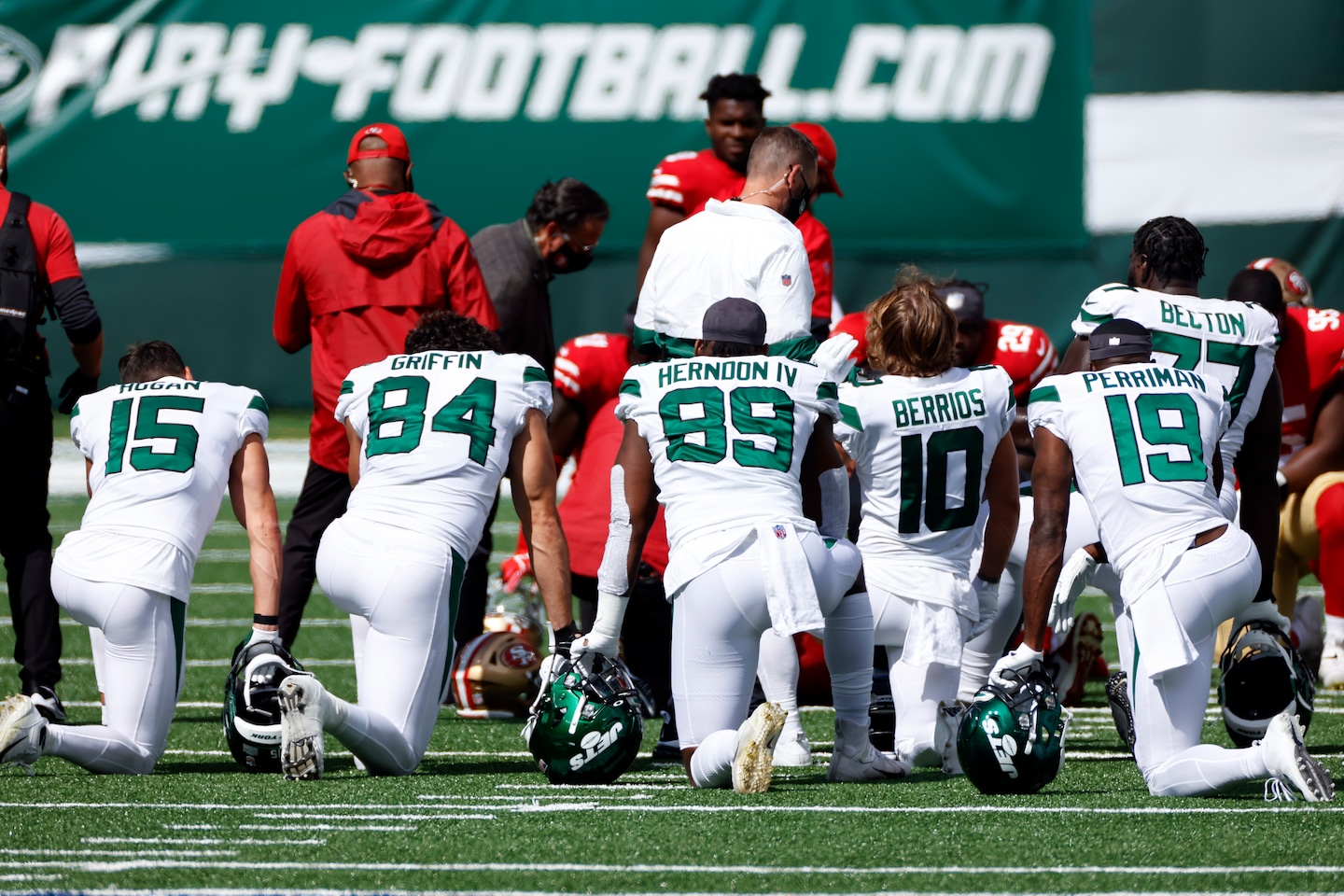The NFL remains our brutal thrill. This season will test its limits.

Consider what the sport is attempting to do: Be the first major American league to complete a full-length season through the mercurial winds of this pandemic, start to finish, without a dramatic disruption. It is improbable, and that’s me being optimistic. Any football season, at any level, is a survival test. And playing sports while trying to evade a coronavirus outbreak makes them survival games. Combine inherent danger with an unusual threat, and there’s no comfortable place. It’s hard to even utter the words “NFL” and “safety” in a sentence without caution.
Persistence comes with some unintended consequences. In time, it may become clear that the NFL rushed toward its traditional early September start. For now, it’s too soon to declare this injury outbreak more than a freak occurrence. The NFL has vowed to do its customary monitoring of the situation, but it won’t draw any fast conclusions. Still, it would be foolish to think the disruption to offseason training — both the team-controlled sessions and limited options outside of NFL facilities because of the pandemic — had no impact. And while the league isn’t as reliant on individual stars as other sports, it’s a bad look to see generational talents Saquon Barkley and Nick Bosa already done for the year and established stars such as Christian McCaffrey and Von Miller out for an extended period.
Then there is the troubling case involving Los Angeles Chargers quarterback Tyrod Taylor, who was a late scratch Sunday because, as ESPN first reported, a team doctor is believed to have punctured his lung before the game while trying to inject a painkiller near the player’s cracked ribs. It was an accident, one mistake on one team. But it’s an embarrassment for the entire NFL at a time in which diligence is mandatory. All NFL personnel carry on knowing that one mistake at the wrong time could put the season in jeopardy.
The biggest concern is all the forces pulling at the NFL. Every week figures to present a new challenge that the league must be prepared to outlast. In Week 1, it was the premature and thoughtless dissection of lower television ratings and the knee-jerk assumption of a connection to social justice protests. It came without satisfactory consideration that the absence of normalcy has changed viewing habits and acknowledgment that, in context, the people still watching TV prefer the NFL compared to other options. The sport is still penetrating what remains of the market at a similar rate, but it’s convenient for some to blame a small sample of reduced ratings on skewed views about the players’ societal empathy. And in Week 2, the conversation centered on the abundance of injuries and the worrying accumulation of ailments.
What trouble lurks this week? As long as players continue to test negative for the virus, the league is more than happy to just deal with it. But as the king of American sports, the NFL knows all of its problems are magnified. More than that, several of the country’s problems are now the league’s issues, too. The fact that the sport is playing without a bubble doubles as a metaphor. This collision of football and society makes it harder than ever for the NFL to anticipate, let alone control, the unknown.
There’s a phrase I like to use to describe the irresistibility of the sport: brutal thrill. Football is always a brutal thrill. To compartmentalize, we tend to accept or ignore the danger. Despite its flaws and history of callousness, the NFL persists in inspiring an odd addiction. Sometimes it can do no right, but its enduring popularity makes it seem as if it can do no wrong. That creates a disturbing level of arrogance among the leadership.
The athletes are so good and the league is so well devised that the sport keeps moving forward. It gets away with its blemishes because it doesn’t oversell virtue. It focuses on toughness and explains how it builds character, all while somehow getting fans to tolerate, even appreciate, that such grit requires a stretching of the very definition of character.
That concept is essential to understanding why the NFL is even playing right now, without any modifications: It believes it is tough enough to handle it. Smart enough, too. But from the league’s perspective, mental toughness is the magic to implementing the health protocols, getting the teams to adhere to them and eliminating almost all coronavirus cases while the nation struggles to do so. It requires what the sport does best: foster an environment of discipline, resolve and competitiveness. Control aggression and prevent recklessness. Compel grown men to work together.
This is why the league sent a message by fining five coaches and their teams a combined $1.75 million for violating the new rules about face coverings. It seemed excessive, but considering what the NFL is trying to do, it can take no chances. Making such a statement is fine, but the league needs to make sure it is vigilant on all matters this season.
There can be no alterations to testing, no matter how good the results look. Concerns about field conditions, such as the ones San Francisco raised about MetLife Stadium, must be handled with greater compassion this season. The league should be extremely cautious about the expansion of this effort to add fans to stadiums. And even if the NFL advances to the postseason without major issues, it should consider playoff hubs and bubbles to secure the most important part of its schedule.
In many ways, this NFL season has only begun to thrill. The sport looks and feels solid. In sterile stadiums, it has been impressive to see the energy and high level of competition. But for just two weeks, the list of concerns has multiplied. The injury outbreak is another sign. This time, it’s far more problematic to ignore the brutal and obsess over the thrill.






